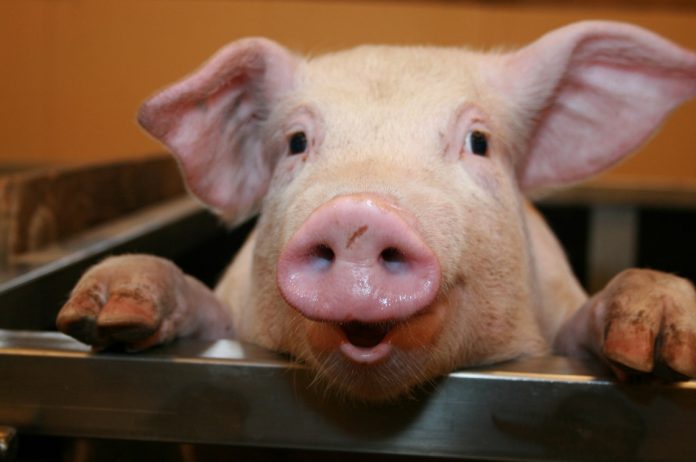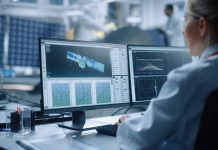Daniel Berckmans and Tomas Norton at M3-BIORES, Catholic University of Leuven detail how European Precision Livestock Farming (PLF) benefits animal welfare and health
Animal welfare is important from an ethical viewpoint but there are more reasons why its importance can hardly be overestimated. One of the main problems coming to us is the issue of antimicrobial resistance (AMR). It is the ability of microorganisms (like bacteria, viruses, and some parasites) to stop an antimicrobial (such as antibiotics, antivirals and antimalarials) from working against it. As a result, standard treatments and medication become ineffective, infections persist and can spread.
In low estimates, the World Health Organization fears 10 million fatalities in 2050 due to AMR. Since most of the diseases for humans are coming from animals, it is clear that we have to monitor our livestock for our own health. This is reason enough to develop and proceed with implementing as far as we can, the automated continuous monitoring of livestock by technology. Other good reasons are the significant influence of the livestock sector on air quality, global climate, soil and water quality and other environmental concerns like gaseous ammonia (NH3) in the atmosphere, of which 50% derives from the livestock sector.
To fulfil the worldwide increasing demand for animal products (meat, eggs, milk) and to create at the same time a more sustainable livestock sector, we need to produce more animal products with less feed input. In other words, we need to increase efficiency. For humans, the literature has described since 1956 that every physical or mental performance requires a certain level of mental focus or mental stress. A company or institute without stress will not perform due to a lack of focus, of engagement and of the so-called good stress or eustress of the employees.
Stress can be very positive to perform when it disappears after the stressor has gone and the task is accomplished. There is no reason why this would be different for animals. We believe that a happier animal will be more efficient because negative stress is depressing the immune system and has an effect on productivity: all the metabolic energy produced from feed intake, going into stress and mental or physical discomfort, is not available for production.
In this vision, animal welfare is much more than just an isolated aspect within the whole production process. Precision Livestock Farming (PLF) will have to come up with new technologies to monitor animal welfare in an objective, fully automated and continuous way by using image-, sound- and/or sensor technology. The other urgent need is that the PLF systems do not only monitor but also deliver active advice to the farmer on what to do when alarms are given, based upon measurements on the animal.
From biology to technology
Many people claim that the future is in big data, the Internet of things (IoT) and artificial intelligence (AI) and in the software rather than in the hardware. We should, however, not forget that living organisms are very complex, individually different and time-varying and that we need technology that can cope with this. At every moment, accurate, reliable and affordable hardware for image-, sound- or sensing technology will remain very important to create successful PLF products. The synergy and collaboration between biology and technology, therefore, becomes more important.
So far, we have mainly used technology developed for some purpose and tried to apply it later on animals. We should, however, start from the animal and check which variables we need to measure, how often, with what accuracy and with what technology. Then we can define the specs and develop the appropriate technology. Solutions that are developed in this concept will consider the living organism from the beginning.
Get more consumer interest
Many people claim that animal welfare is important but it remains questionable whether people are prepared to pay more for such an animal-friendly product. To solve this, we first need a solution that allows consumers to find such animal-friendly products in a reliable and easy way. We require a more trusted system that works in an easy way and that is convincing for users to catch appropriate objective information. For Europe, it is important to develop such working systems that will help consumers to trust the value of animal welfare in the animal products they buy.
Human-animal relationship
All children, farmers, researchers and others working in an intensive way with animals, know from experience that animals are sensitive to the way in which people treat them. Though animals are individually different, this human-animal interaction will also be measurable by PLF technology like, for example, in the milking parlour for cows.
Today, we have no idea if and in what way the farmers’ stress is influencing animal welfare. In case there is a relationship, then it seems logical that this relationship will influence the production results as well. We put rather intelligent animals like pigs in a very boring environment and the possibilities to use PLF technology to create an interesting, adventurous environment for curious animals is not so much used yet, so there is another opportunity here to realise playful events and environments for our animals to give them a life that is worth living.
Acknowledgements/references
The authors gratefully acknowledge all his partners in the project and the European Community for financial participation in Collaborative Project EU-PLF KBBE.2012.1.1-02-311825 under the Seventh Framework Programme.
Please note: this is a commercial profile
Berckmans Daniel
Professor
Norton Tomas
Professor
Catholic University of Leuven
Tel: +32 479 983 819












